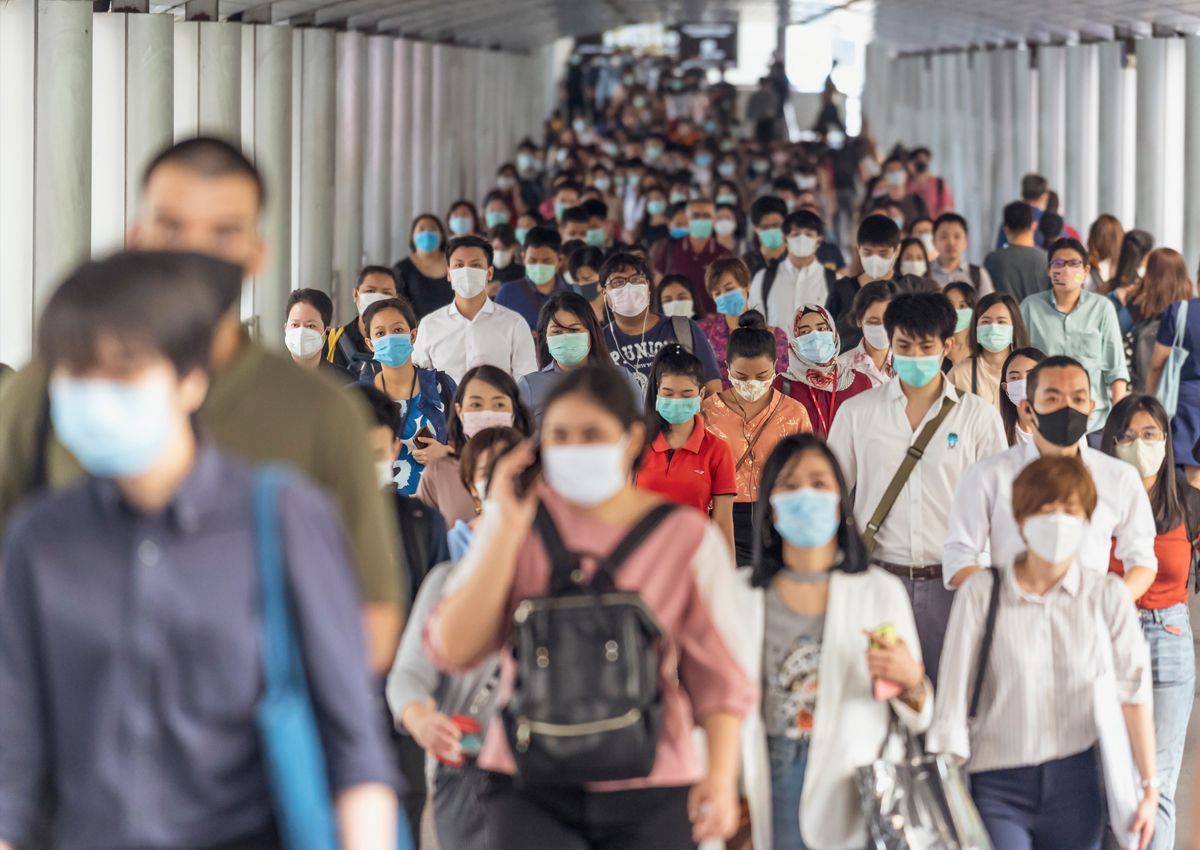
Global Report Reveals Scope of Food Crises as COVID-19 Poses New Risks to Vulnerable Countries
April 29, 2020| |
The Global Network Against Food Crises, an international alliance of humanitarian and development actors committed to tackling the root causes of food crises, has released The Global Report on Food Crises 2020. This year's Global Report reveals the scope of food crises as COVID-19 poses new risks to vulnerable countries. The data and analyses presented in the Global Report predate the COVID-19 pandemic but reveal an already dire picture of global acute food insecurity and malnutrition – even before the disease's spread began to impact food systems.
The report reveals that at the close of 2019, 135 million people in 55 countries and territories faced acute food insecurity, and required urgent action. In addition, over 183 million people were in stressed food insecurity conditions, at high risk of sliding into acute food insecurity if confronted by additional shocks – which is particularly worrisome in light of the anticipated evolution of the COVID-19 pandemic. At the same time, 17 million children in these 55 countries and territories suffered from wasting due to acute malnutrition, and as many as 75 million had stunted growth due to chronic malnutrition.
This is the highest level of acute food insecurity and malnutrition documented by the Network since the first edition of the report was released in 2017. More than half (73 million) of the 135 million people covered by the report live in Africa; 43 million live in the Middle East and Asia; 18.5 million live in Latin America and the Caribbean. The key drivers behind the trends analyzed in the report were: conflict, (the key factor that pushed 77 million people into acute food insecurity), weather extremes (34 million people), and economic turbulence (24 million). Unfortunately, the situation in 2020 could continue to worsen due to the impact of COVID-19, although the precise magnitude of the deterioration is not yet known.
For more details, read the Global Report's Key Takeaways, or visit the Food Crises and COVID-19 website.
| |
You might also like:
- A Call to Action for World Leaders: Prevent Global Food Security Crisis in COVID-19 Fight
- International Seed Federation Calls on Governments to Facilitate Movement of Seeds in the Time of COVID-19
- Scientists Say COVID-19 Coronavirus Has Natural Origins
Biotech Updates is a weekly newsletter of ISAAA, a not-for-profit organization. It is distributed for free to over 22,000 subscribers worldwide to inform them about the key developments in biosciences, especially in biotechnology. Your support will help us in our mission to feed the world with knowledge. You can help by donating as little as $10.
-
See more articles:
-
News from Around the World
- Global Report Reveals Scope of Food Crises as COVID-19 Poses New Risks to Vulnerable Countries
- New Video: We are ISAAA
- Rice Genetically Engineered to Resist Extreme Heat also Produces Up to 20% More Grain
- 10-year Post-Market Evaluation in EU Reports No Adverse Effects by GM Maize MON810
-
Research Highlights
- Zeaxanthin‐rich Tomato Fruit Developed Through Genetic Manipulations of Carotenoid Biosynthesis
- Brightest Engineered Plants Glow Throughout Life Cycle
-
Plant
- Genome-edited Camelina Receives Positive Response from USDA APHIS, Field Trial Proceeds
- Ag-economist Pushes for Regulatory Reforms, Renewed Public Debate on New Plant Breeding Techniques
-
Health
- FAO, IFAD, World Bank, and WFP Joint Statement on COVID-19 Impacts on Food Security and Nutrition: Countries Must Work Together to Ensure Food for All
- Nanoengineers Combine Molecular Farming and Advanced Manufacturing to Develop COVID-19 Vaccine
-
Read the latest: - Biotech Updates (December 17, 2025)
- Gene Editing Supplement (December 17, 2025)
- Gene Drive Supplement (February 22, 2023)
-
Subscribe to BU: - Share
- Tweet

